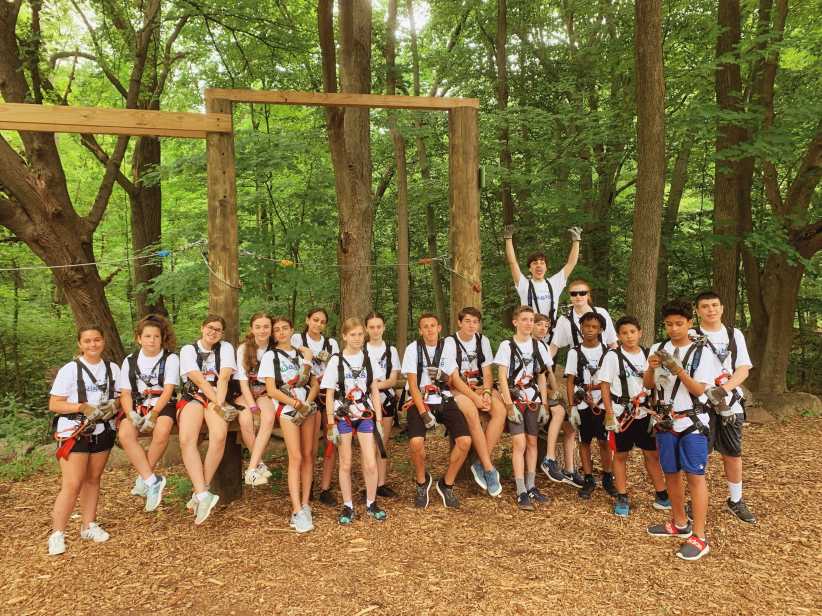
Exploring College Alternatives with Your Teens
Senior year is a significant milestone for any high school student. It’s a time when they start preparing for their future and considering what is the right fit for them. While the traditional route is heading to college, it’s a path that only some want to take. If you’ve got a teen who’s confused, overwhelmed, and not sure about college, it might be time to start discussing alternatives, and there are a lot. From trade schools to gap years, there are plenty of options, and here’s how you can start having that conversation today.
Where to Start: Their Interests
Parents play an essential role in helping their children navigate the many career options available today. A great way to start is by discussing your child’s interests and reassuring them that they’re not alone in this journey.
Questions you can ask to get the conversation started:
- What are your favorite things to do in your free time?
- Are there any subjects in school that you like more than others?
- When you think about your future, is there anything you feel potentially excited about?
- Is there something you think might be out of reach?
Presenting your kids with these questions will give them space to reflect on their passions and open up the conversation. Opening up the conversation will also help to narrow down the potential college alternatives that can be explored.
College Alternatives
Today, there are several “non-traditional” options for kids to consider. Below are just a few.
Trade Schools
Trade schools provide hands-on training for specific careers. While trade schools are not tuition-free, they are generally more affordable than traditional four-year colleges. Trade schools are all about focusing on the specific career you’re interested in without signing up for courses that don’t align with your major. Classes are generally smaller and are all focused on your career of choice. It’s also one of the best ways to land a job quickly. There are plenty of job options for graduates who have studied in trade and vocational schools. Some career options for these schools are culinary arts, the automobile industry, cosmetics, dental, construction, HVAC, animal care, and more.
Community College
Community College is a great alternative to your standard four-year college or university. It’s a popular option for many reasons. Students can walk away with a degree; it’s a way to explore whether or not college is a great fit and can serve as a transition from high school to university. Community colleges often offer more flexible schedules, lower tuition costs, and smaller class sizes, making the experience feel personalized and less overwhelming than the traditional university route.
Apprenticeships
Apprenticeships are paid programs that combine classroom instruction with on-the-job training and direct supervision to prepare students for their careers. Apprenticeships are great college alternatives that are often overlooked. Some of the benefits are getting paid while learning, gaining skills from a mentor, obtaining credentials, receiving mentorship, degree potential, and avoiding student debt. Apprenticeship programs are offered by community colleges, technical training schools, and employers. Families can also search for current apprenticeship opportunities by heading to apprenticeship.gov.
Military or Navy
Joining the military or navy is another common alternative for teens not interested in attending a university. While joining the military is a huge commitment, there are pros to choosing to serve. Joining the military can mean exploring various skills for free, getting paid to work, and, for some, getting the opportunity to travel the world. This can be an alternative for teens who have shown interest in serving.
Coding Boot Camp Programs
Coding boot camp programs have recently gained a lot of popularity because of the potential earnings that come from working in the field of software engineering or other technical fields. Coding boot camps can range from six to twenty-eight weeks and are known for being intense. Those who choose to sign up for coding boot camps gain a lot of knowledge in a short amount of time. These programs also generally provide their students with job opportunities at the end.
Gap Year/Working
Sometimes, one of the best options for teens who may be confused about the future is allowing them to explore the real world and head straight to work. A gap year could be what your teen needs. Gap years are a way to explore the real world while also having support from parents along the way. Working full-time will provide hands-on experience, teach kids the value of money, and can even land them in a career they would have never thought of. Sometimes, landing an entry-level job can mean falling into the career meant for you, which can happen during a gap year.
These are just a few alternatives to college that can help ease your teens confusion and offer some clarity on the many options that exist out there today. The traditional college route doesn’t have to be for everyone, and it’s important that teens know that, especially at a time when it’s all they’re told to focus on.
The Ongoing Conversation
The conversation doesn’t end with providing alternatives or asking a couple of questions; it’s probably going to be something you actively work through throughout the year. A big part of their confusion can stem from not fully knowing what the real world has to offer and what life as an adult truly looks like. Some of the best things parents can offer are support, understanding, and knowledge of what life after high school looks like. Keep the conversation going and acknowledge that this can be a confusing time for anyone, but eventually, you figure out what’s best for you.
Psst… check out How Music Saved My Son’s Life.


























